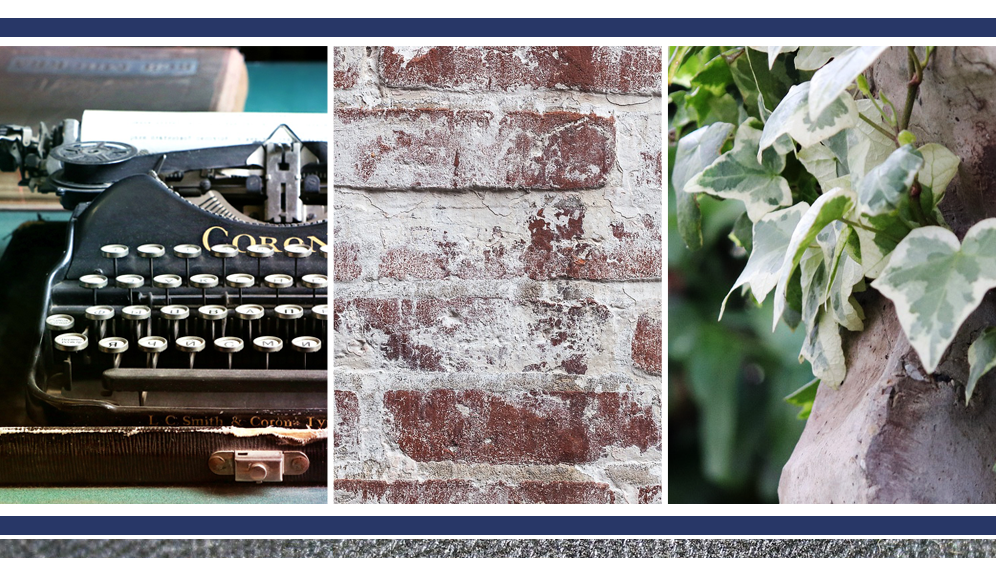 “We’re just covering our bases,” we said when we decided to make the appointment. “Just a formality, just in case. Probably nothing.” But we knew it wouldn’t be just a formality or just in case.
“We’re just covering our bases,” we said when we decided to make the appointment. “Just a formality, just in case. Probably nothing.” But we knew it wouldn’t be just a formality or just in case.
When my second child was about three months shy of 3 years old, I took him to a private speech therapist. I had waited, per my pediatrician’s suggestion, to see if he would grow into his speech. He seemed to understand everything just fine, and he talked an awful lot. But I was his primary caregiver, and I couldn’t understand 90 percent of what he said.
I asked his preschool teachers how his speech compared to his classmates’ in his two year old program. I wanted to make sure I wasn’t just comparing him unfairly to his verbally precocious older brother, who seemed like he spoke like an adult (if a very irrational adult) from the time he came out of the womb. At first, they said no, they noticed nothing different. I relaxed. About a week later, the lead teacher pulled me aside. “You know,” she said, “after you mentioned it, we started noticing that he actually just doesn’t talk in class… really, at all.”
That was how I found myself sitting in a small room, in a small chair, watching my son play on the floor with well-loved toys while I filled out The Forms. So many forms. It was a booklet. The questions were endless, and the questions were relentless. They asked me about his birth. They asked me about his infancy. They asked me about his toddlerhood. What were the circumstances and details of his birth? His birthweight? What was his first word, and when? When did he roll over? crawl? Walk? Had he experienced any trauma? When? How? How many of these fifty words would he recognize? How many does he say? How often does he say them? What foods does he eat? When did he start eating them?
I stared at the pages. I felt as if I was on trial. I knew the purpose of these eight zillion questions was just to gather as much information as possible, to help diagnose my son’s issue and more importantly, to help my son. All I wanted in the whole world at that moment was to help my son. But answering those questions, I felt as if every second of his life was under a microscope… and with it, me.
I felt especially keenly how little I remembered. Was I supposed to know all of this by heart, off hand? I had two babies 21 months apart. The preceding four years had been a crazy blur of sleepless nights, pregnancy, and diapers. I had no idea when he rolled over or when he crawled. I had no idea when he started talking or how many of those words he knew. The letters blurred together and swam on the page. I would reveal myself, right there on those very official forms, to be a completely unobservant, negligent mother who really hadn’t paid attention to my second baby’s babyhood. No wonder he couldn’t talk.
It’s my fault, I heard in my head as I wrote down the circumstances of his birth. He stopped moving in the womb at 37 weeks. I sat in triage a whole day, waiting for him to move. Finally, we had to induce him, unable to determine why he was so still. He was born a healthy 8 pounds, 9 ounces, his umbilical cord wrapped twice around his neck, but not blue. He nursed well, he grew well. He slept early and often, the complete opposite of my first newborn.
I paused at the question about trauma. When he was nine weeks old, my mother was carrying him when she lost her footing by stepping in a divot in the pavement on a road. She fell to the ground, dropping him on his back and the back of his head. It was almost kind of a a release to have one of my worst new-mother nightmares come to fruition: someone actually dropped my baby. After a horrific ride in an ambulance with my 9 week old strapped to a board, X-rays and examinations declared him fine. My heart was not. Two years and change later, I had to write the scene out again on those forms, and the doubts began creeping back. Was he not fine? Did something stop working when he hit the ground that day?
By the time I finished the pages and pages of questions, my shoulders had long since slumped in defeat. I was demoralized. I was convinced I had somehow failed my baby in utero. I was convinced he had brain damage from falling on his back at nine weeks old. I was certain a better mother could answer the questions about his milestones confidently and easily. This is where failures bring their children, I thought. Failures fill out The Forms.
I know it’s not true, of course. I wasn’t a failure. I was weary, a little battered, a little worse for the wear after a few years of sleep deprivation and hormonal roller coasters. I was deep in the trenches of motherhood, not yet able to see a horizon line beyond Baby Einstein and nap schedules and time outs. But as any mother who has ever sought an evaluation of any kid for her child can tell you, The Forms just seemed to cement every slippery doubt, every nagging worry, every small neurosis that had ever kept me awake at night even though my exhausted bones screamed for mercy. They’re insidious, the forms. They’re brutal. They’re unforgiving. They’re poker-faced. They’re merciless. They convince you that your child is not okay.
And sometimes he isn’t. Sometimes, the doubts are right. Sometimes, it’s not until you sit in a small chair in a small room with a toddler playing at your feet — your world still for the first moment that day — and stare at the pages of questions you don’t want to answer, that you acknowledge that you already know that he’s not okay.
For us, two and a half years of speech therapy yielded a child who can speak articulately, if not completely perfectly. He can speak well enough to tell me when he hates me and when I have failed, but also whisper that he loves me before he closes his eyes at night. We still do not know why he had articulation difficulties and mouth weakness. Now, when my friends tell me they are going in with their children for evaluations — any kind of evaluation — I nod my head silently. I know the first hurdle will be The Forms. They’re awful. But they are the first step toward something else: Hope.
This post originally appeared on Brain, Mother, the blog for Brain, Child magazine.


Oh my goodness, so many parts of this story are heart wrenching. I’m so sorry you had to go through all of that.
My 3 year old son needs speech too, and I was also overwhelmed by the paperwork and the probing questions. And he actually did have a traumatic birth.
BUT I think that the speech is just a part of what he needs, not a part or a result of trauma. And I know that it will only be a very temporary part of the amazing person he will grow to be.
xo